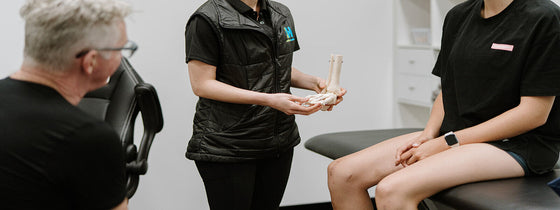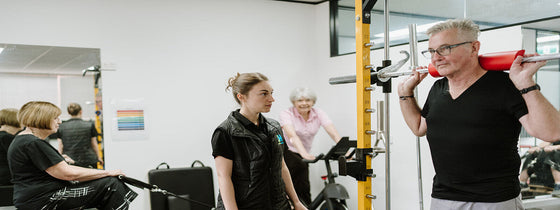Triathletes are at high risk of shoulder pain due to the seemingly contradictory movements that each discipline expects. Swimming requires a highly mobile thoracic spine/rib cage area, strong hip movements to drive a stroke forward and high use of your shoulders internal rotator muscles to pull through the water. Without these key movement qualities in the swim leg, triathletes have a tendency to pull through the water using their shoulders only, and not using their entire kinetic chain, and here starts our injury issues in shoulders.
After swimming, triathletes will find themselves cycling and spending large amounts of time in positioning dominated by leaning forward through the hips (called hip flexion). Furthermore, cycling training requires extended time frames in a flexed thoracic/upper spine to reach the handlebars, which is not ideal for the desired swimming mobility. Onto the third leg! Thankfully, running and swimming exhibit less extreme changes in positioning in comparison to each other, plus running is very unlikely to give you extra shoulder load or reasoning for pain, so we're cool in this leg!
So, how do we avoid shoulder pain when your week is always going to include these three disciplines?
1. It's paramount to ensure a triathlete's bike set up is created to minimise these extremes. The bike set up should consider the biomechanical necessity of handlebar height, seat to bar length and bike seat height for each athlete, and how comfortable they feel in the position (in short and long training sessions).
2. In the training setting, it could be advantageous to give yourself sufficient time to 'reset' the body through swim/run drills, general mobility and body patterning work when changing disciplines. This can be as simple as performing some bridges to encourage hip extension and using exercises like bow/arrow, book opener and rolling into a ball to help with upper back mobility.
3. Don't let other injuries increase your risk of shoulder pain. If your hip or knees are hurting, it can affect your kinetic chain in riding, swimming and running, so be proactive with injuries, especially in times of high loading.
4. If you're having some shoulder pain intermittently, avoid spending heaps of time using a kick board. The position of your shoulder using a kick board mimics the position of the hand reach in freestyle, which happens to be the most common site of swimmers' shoulder pain. If you're sore, then trial reducing the load on the neck and/or check your mobility out of the pool then try again.
5. Lastly, seek advice from your coaches for your swim technique. The majority of our swimming load as triathletes is in freestyle, therefore ensure you are swimming as efficiently as you can to reduce the 'swimming with your arms only' issue.
Ultimately, the OHL team wants to help our triathlete community to continue training at their best and reduce injuries before they happen. We hope this article gave you some helpful tips to achieve your goals - injury free!

OHL is integrating a new athletic screening assessment into its practice to further enhance our community's sporting ability. This screening assessment combines range of motion, strength profiling, force deck analysis, and subjective training status to give athletes a comprehensive performance snapshot. By establishing a baseline and identifying key areas for improvement, we can tailor your training to enhance performance, provide insight on key metrics, and stay resilient throughout the season. Whether you're preparing for preseason, managing midseason demands, or simply aiming to train smarter, this assessment delivers the data-driven insights you need.

If you're experiencing back or neck pain with neurological signs and symptoms, a thorough neurological examination is crucial for accurate assessment and effective treatment. In this Optimal Tip learn more about what we mean by completing a neurological exam!

Squats, deadlifts, and calf raises are key movement patterns that should be part of every strength and conditioning program—regardless of age and activity level. These functional movements support joint health, improve posture and balance, and reduce the risk of injury while building strength where it matters most.